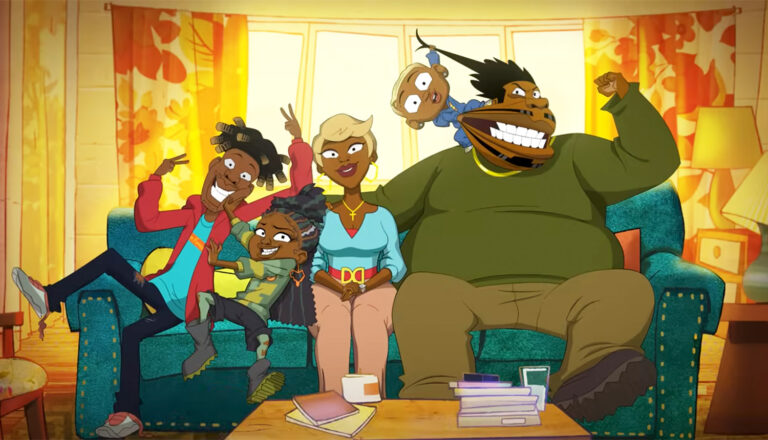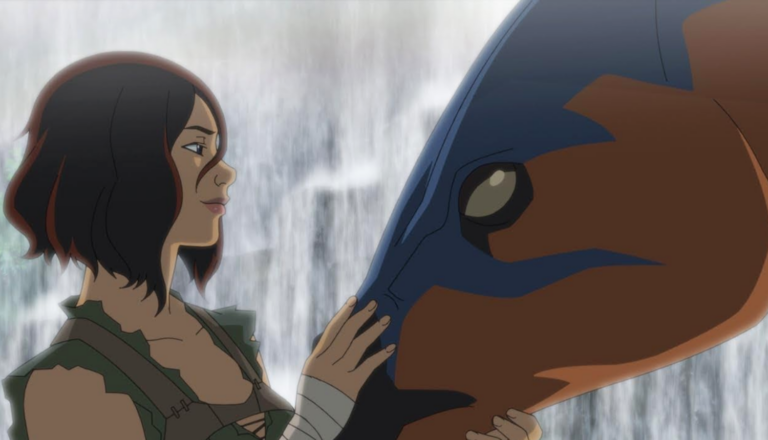
Good Times
Netflix takes a classic sitcom, Good Times, and turns it into a vulgar, violent, sexually-charged TV-MA show.

Who did Scott Landon belong to?
For Lisey, the question comes with a simple answer: Scott belonged to her, just as she belonged to him. They were married for years before his untimely death. And if he kept secrets from her … well, that’s to be expected, right? No one can know everything about a person. They loved each other. That was enough.
But for his fans, that answer doesn’t satisfy. They think Scott belongs to them. As one of the world’s foremost literary talents—an author with the ability to blend dark imagination with gritty realism—he not only sold countless books but shaped his readers, too. He belongs to the world, his fans argue.
Now, as a grieving Lisey shuffles through boxes of Scott’s work, those fans wonder whether an unpublished story or two, perhaps even a novel, lurk in those cardboard folds. They want them. Need them, perhaps. And if anyone—even Scott’s widow—stands in their way, those fans will kill to get those stories.
Lisey has always known that her late husband’s fandom could be, shall we say, extreme—that the stories he wrote had a curious pull on some who read them. “Most of them love you, but it only takes one who doesn’t,” Lisey once told him. And indeed, a couple of years ago, a man pointed a gun at Scott’s chest and pulled the trigger, sending Scott to the hospital.
But the gunman said something before the bullet flew. “You stole my mind,” he said.
Lisey heard it and wondered. See, her husband wasn’t like other guys—even other writers (who tend to be a pretty weird lot). He bragged about his ability to heal quickly, a trait that seemed to go beyond just simple good health. Sometimes, it seemed as though he’d vanish and then reappear. And after the shooting, he confessed something to Lisey: His work wasn’t the product of imagination, precisely, but visions. He could take readers to such vivid, often nightmarish realms because he saw them himself.
Now, it seems, she’s seeing Scott almost as often as when he was alive. He visits her in her dreams. He takes her through memories—some treasured, many painful. He asks her to go on a treasure hunt, of sorts: A “bool hunt,” he would say. All the clues are in place. And if she follows them all, Scott promises a treasure at the end.
It better be a whale of a treasure, because Lisey has some serious post-Scott concerns. Her sister, Amanda, is in a catatonic state. She still has mountains upon mountains of Scott’s boxes to go through. And now, she’s being harassed by a man—another of Scott’s most fervent fans—who believes that those boxes of Scott’s manuscripts don’t rightfully belong to Lisey.
“Scott Landon is life,” he says. “His books changed me. No woman gonna say no to me.”
And if Lisey does say no? Well, the man has plans for that, too.
In his nearly 50-year career, Stephen King has published more than 60 novels. But his favorite? Lisey’s Story, published in 1962. In a 2017 interview with Variety, he said:
“Lisey’s Story is my favorite of the books and I would love to see that [adapted for the screen], especially now that there’s a kind of openness on the streaming services on TV and even the cable networks. There’s more freedom to do stuff now and when you do a movie from a book, there’s this thing that I call the sitting on a suitcase syndrome. That is where you try to pack in all the clothes at once and the suitcase won’t close, so you just sit on it until it latches. … So it’s tough to take a book that is fully textured and has all the wheels turning and do it in two hours and 10 minutes. But as a TV show you have 10 hours, there’s always the possibility of doing something like The Handmaid’s Tale, which is extraordinary.”
Fast-forward four years, and Lisey’s Story is on a streaming service—Apple TV+—starring Julianne Moore and Clive Owen, with each show’s script written by King himself.
Anyone familiar with Stephen King knows that his books come with plenty of concerns. The author’s works—and often the movies and TV shows based on them—can be crass, violent, tawdry and spiritually creepy. Lisey’s Story is slightly gentler than much of King’s catalogue (some have called it a romance), but that’s hardly reason to celebrate. This miniseries contains content caveats aplenty.
Blood isn’t just shed: It’s splattered. Incredibly violent, even sadistic, acts can be shown on screen. Foul language, including the f-word, peppers the dialogue. And as we start delving into Scott Landon’s “visions,” the story can take on a mystical, even quasi-spiritual, tang. Certainly, King fans (most of whom are hopefully not quite as rabid as Scott Langdon’s) will be pleased with what they see in Lisey’s Story. We can assume that King himself approves. But for those who don’t care to watch the inside of their screens spattered in blood or their speakers fouled by language? You might want to turn the page.
As Lisey struggles to move past Scott’s death (and move through all his old papers), she’s pressured by Prof. Dashmiel—one of the country’s foremost experts on Scott’s work—to turn over those boxes of old writings to Dashmiel’s college. She refuses, and Dashmiel turns to an unhinged fan to “encourage” Lisey’s cooperation. Meanwhile, Lisey begins finding clues that Scott left behind—clues, apparently, for an elaborate “bool hunt,” a scavenger hunt with a treasure at the end. And when her sister, Amanda, engages in self-harm and plunges into a catatonic state, Lisey and her other sister, Darla, struggle with her care and safety. Amanda spirals into her catatonia after learning that her ex remarried. She smashes a china cup and saucer as she talks with Lisey on the phone, and we see her grinding the jagged pieces into her hands and arms. Lisey repeatedly hits her head against a car window. In repeated flashbacks, Lisey sees Scott shot by an unhinged fan. The bullet enters Scott’s chest, and a blood stain blooms across his sweater as he falls to the ground. Lisey takes a nearby shovel (Scott was actually leading a groundbreaking ceremony for a new college library) and slashes the shooter across the face with its blade. A horrific gash opens up on the man’s cheek and blood spurts out. Later, in what seems like a vision or hallucination, Lisey sees the still-disfigured shooter in her house, pointing a gun at her and firing. Dashmiel’s helpmate, who calls himself Jim Dandy, terrifies a librarian and pushes a row of books onto the ground to clear a place of honor for Scott’s favorite childhood book. He calls Lisey, telling her that if she doesn’t hand over Scott’s work to Dashmiel, “I’m going to hurt you in places you didn’t allow the boys to touch at junior high dances.” Both he and Dashmiel are openly hostile to Lisey, sometimes referring to her as “Yoko,” with Dashmiel dismissing her as a “restaurant hostess” before meeting Scott. Lisey dreams of a surreal alternate world, where a gigantic humanoid beast prowls across the landscape. In flashback, Scott kisses Lisey’s sister Amanda while she’s in an earlier catatonic state; he draws back, and we see a flow of water move from his mouth to hers. He says it’s water from the Lansford family pool, and it cures her catatonia. He also seems to have divined Amanda’s latest dive into the condition, arranging a room and doctor for her before he died. Jim Dandy paraphrases Matthew 7:16: “By their work you shall know them,” he says. In flashback, we see Lisey’s father toast her and Scott during the wedding, referencing Scott’s work in the realm of “magical surrealism.” “He was drunk,” Lisey recalls in a dream. “Yeah, and he loved you,” Scott tells her. We see Amanda and others holding champagne glasses. We hear the f-word six times. We also hear “b–ch” and a few misuses each of God’s and Jesus’ name.


Paul Asay has been part of the Plugged In staff since 2007, watching and reviewing roughly 15 quintillion movies and television shows. He’s written for a number of other publications, too, including Time, The Washington Post and Christianity Today. The author of several books, Paul loves to find spirituality in unexpected places, including popular entertainment, and he loves all things superhero. His vices include James Bond films, Mountain Dew and terrible B-grade movies. He’s married, has two children and a neurotic dog, runs marathons on occasion and hopes to someday own his own tuxedo. Feel free to follow him on Twitter @AsayPaul.

Netflix takes a classic sitcom, Good Times, and turns it into a vulgar, violent, sexually-charged TV-MA show.

While its protagonist might live a nuanced life, The Sympathizer’s problematic content can’t be described the same way.

Say hola once again to the iconic explorer in this faithful reboot of the children’s series.

Based on a popular video game, Ark: The Animated Series features hungry dinosaurs, bloodthirsty people and plenty of problems.